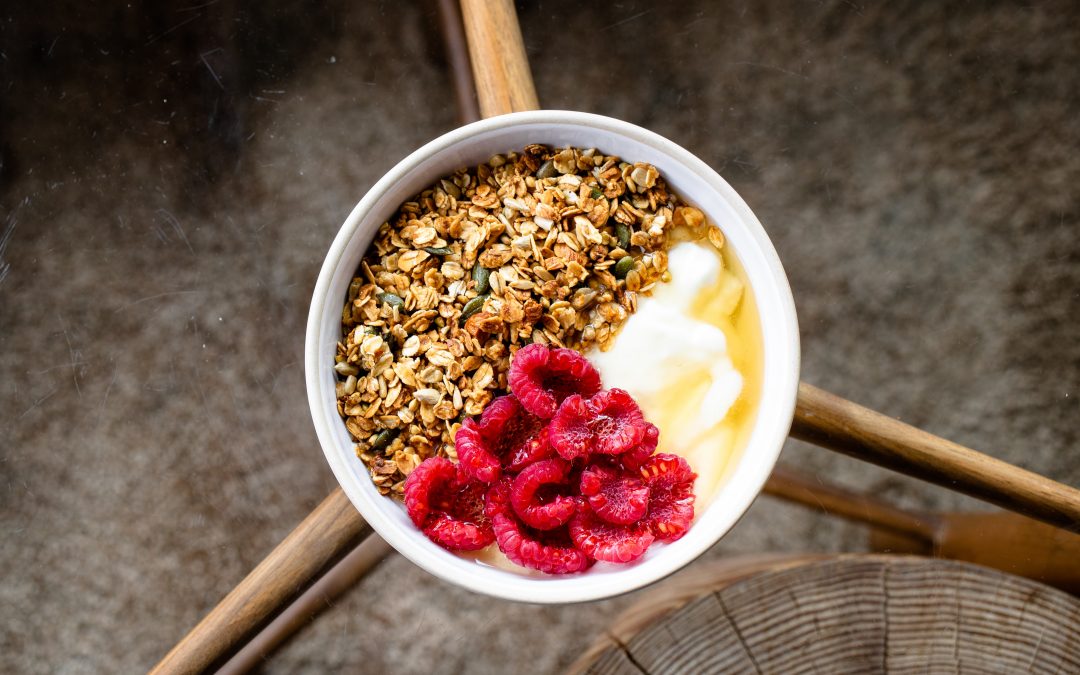Do you know if you are consuming enough fibre?
Do you know how important fibre is for health? Fibre does a lot more than just ensuring you have regular bowel habits :).
Fibre is contained within carbohydrate food products. This includes foods derived from wheat, maize, grains (barley, quinoa, rice), nuts, seeds, legumes, beans, pulses, fruits, and vegetables. Fibre is listed on the nutritional information table on the packaging (usually the back) of food products in South Africa. It is listed at the bottom of the table. Any product that has more than 6g of fibre per 100g of food product is considered “HIGH” in fibre and is the favourable choice.
Did you know that the recommended quantity of fibre for the average adult is 25 for women and 38g for men PER DAY?
It is recommended to achieve this intake from a variety of fibre sources.
What is fibre?
Fibre is fundamental for healthy GIT function. It is the edible but indigestible starch component of the carbohydrate food. Fibre is in the form of soluble fibre (fruits, vegetables, legumes, barley, and oats) or insoluble fibre (whole grain and whole wheat carbohydrate products, maize/corn derivatives and lots of other vegetables). Both the fibres have different but important functions.
Fibre travels through the GIT (undigested) until it reaches the site where the magic happens: the large intestine. Here, the fibre is fermented by the local gut bacteria to produce short chain fatty acids. These short chain fatty acids (namely acetate, butyrate, and propionate) have many important benefits for health including anti-inflammatory properties, increasing the good bacteria in the GIT, promoting detoxification, stabilize GIT microbiota colonies and increasing intestinal bacterial concentrations. Fibre absorbs water into the GIT tract which increases satiety and works to form a healthy stool. It can also lower blood cholesterol levels. Fibre increases peristalsis, which maintains healthy bowel habits, promotes efficient waste removal, and prevents constipation.
Fibre increases satiety; it is very filling! It can help with weight loss, as well as help to maintain stable blood glucose (sugar) levels and prevent the development of diabetes. If you eat meals higher in fibre, you might not find yourself feeling hungry 2-3 hours later. This is because fibre absorbs water and delays gastric emptying (it takes longer to digest) and this is also why it has benefits for blood sugar regulation. Your blood sugar increases will be gradual if you are consuming high fibre whole grain carbohydrates.
In summary, fibre is a very important (yet under emphasized) element of the diet. Its benefits include (to name a few): regular bowel habits, satiety, diabetes prevention, lowered blood cholesterol, IBS management and prevention, constipation prevention, colon cancer prevention, AND anti-inflammatory properties.
We challenge you to check and compare the fibre content of your food products with similar products. Compare the fibre contents of breads, crackers, cereals, grains, potatoes, rice, pasta, and starches. Have high fibre products accessible in your homes. Include these products into your daily and weekly meals. And most importantly, always choose the higher fibre option!


So insightful. I have increased my Fiber intake over the past year and my health/skin has remarkably improved!